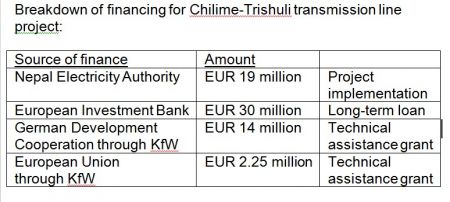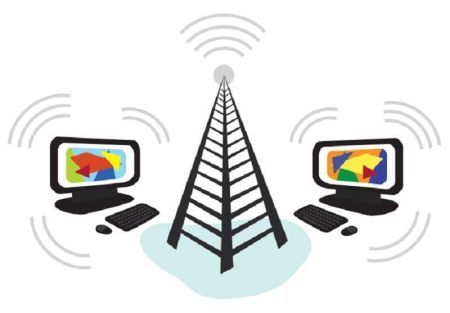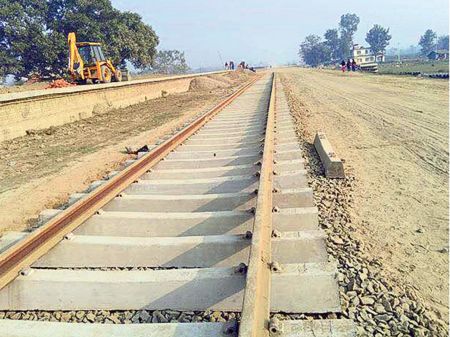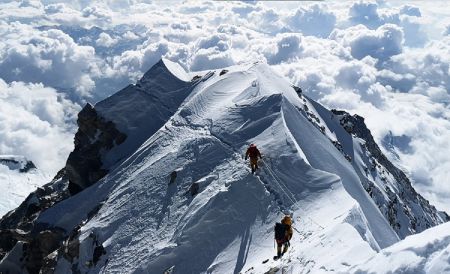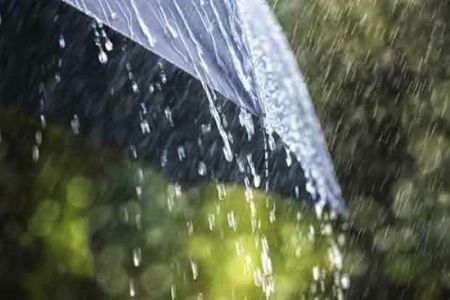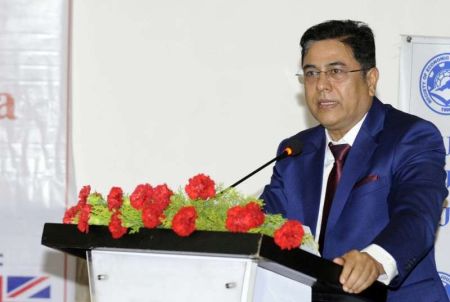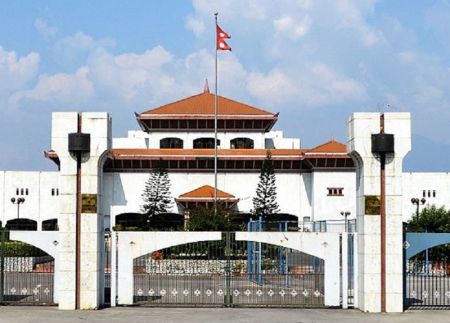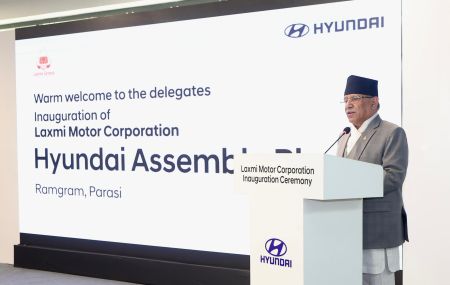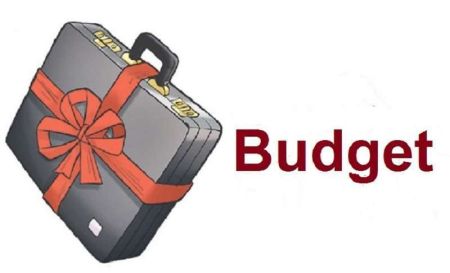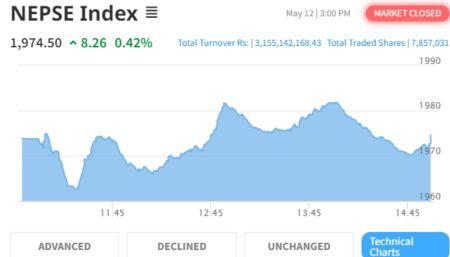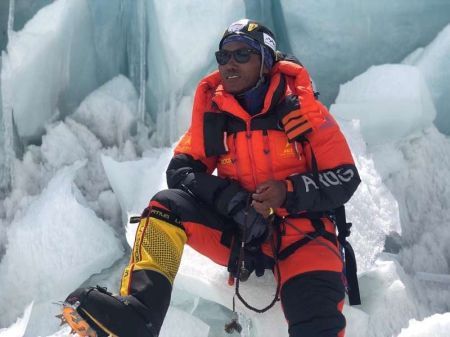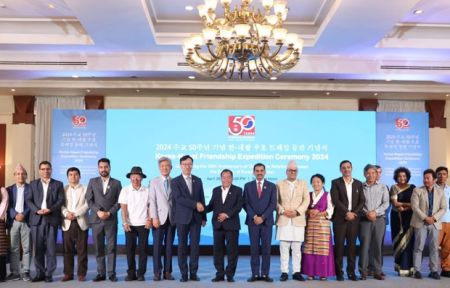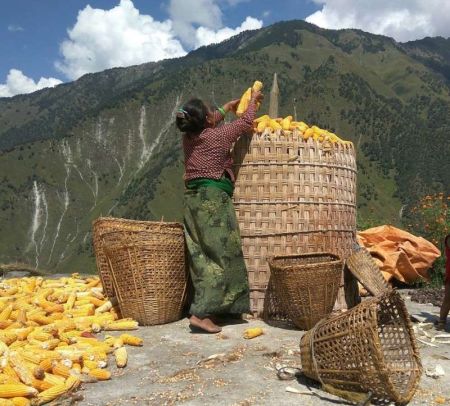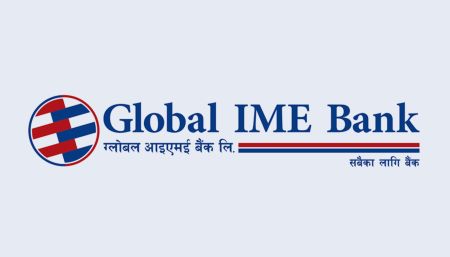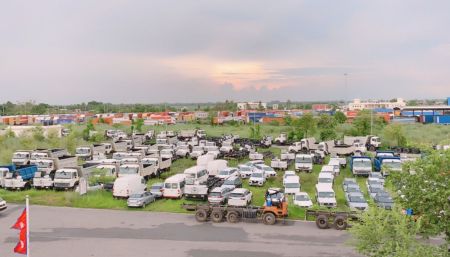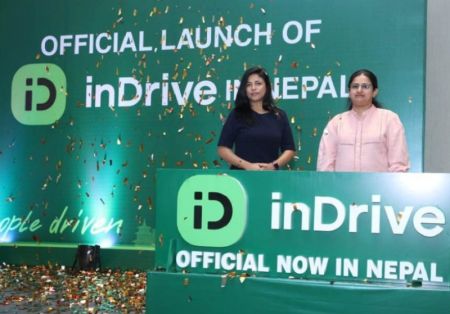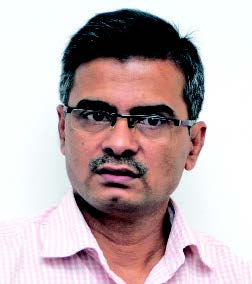 PANOS South Asia, the regional media center of PANOS Institutes worldwide, has been working to encourage public discourse and to ensure the right to information in multiple ways since 1997. This week, Nepal’s Country Representative Damakant Jayshi spoke to Sanjeev Sharma of The Corporate about the institute’s journey thus far. Excerpts:
PANOS South Asia, the regional media center of PANOS Institutes worldwide, has been working to encourage public discourse and to ensure the right to information in multiple ways since 1997. This week, Nepal’s Country Representative Damakant Jayshi spoke to Sanjeev Sharma of The Corporate about the institute’s journey thus far. Excerpts: What is Panos South Asia doing in the South Asian region?
Our main focus is media development and supporting the media in various ways. We work on four broad subjects - the environment, public health, conflict and globalisation – and engage the media with issues in these topics. We also design relevant training and project designing programmes with thematic and journalism experts. The trainings include short term or long term fellowships. We take feedback from trainees in our various programmes for capacity enhancement of the media and journalists.
Do you work directly with governments, development partners or do you work independently?
We do not have any long term partnerships so far. Panos, founded in 1997 is in its 16th year and we have had many partnerships during this period. Our partnership is based according to our projects and but some donors use to give institutional funding to boost our capacity. Currently, we are engaged in rolling partnerships which are based under our themes. For now, we are working with Climate and Development Knowledge Network (CDKN) of the United Kingdom for two years. But we usually try to partner with local NGOs. We are now thinking of trying to re-orient ourselves towards new media and multimedia. We hopefully will have enough foundation to enhance the capacity of Nepali journalists (in both Nepali and English languages) to help them become multimedia journalists.
What are your major achievements so far?
Panos has a long history. We had a Panos Radio South Asia Project which ran for five years that came out with quality programmes that were broadcast by local radio stations. We worked as a partner with Caravan Magazine where we promoted long-form journalism. We count various trainings, workshops and fellowships as our key achievements. In the climate change blog section of our website, ex-trainees keep updating their comments and feedback which is also a part of our success. We have trained 89 people in various themes from Nepal and South Asia in both long and short term fellowship programmes thus far.
Do you have any specific strategies to support development?
We try to create an atmosphere for the media to focus on issues that demand coverage. We focus on particular issues that engage national or local media with the motive of bringing positive change.
Nowadays the news media in South Asia seems to use to a lot of negativity. What is your take on this?
Negative news coverage is an old practice and a long standing debate in the media sector. Earlier, the media could not differentiate between what was worth publishing and what was not, and thus the practice of negative news was frequent. However, we can see change these days where the media is inclined to analysing both sides of an issue. The practice of negativity and making sensational news can be improved by persons from the media themselves.
Has Panos South Asia helped to make media strategies for the government and other development partners?
We have not made any media strategies for the government or any political party. We do not want to engage in the politics of this field.
What problems have you seen in investigative journalism in the context of Nepal?
Investigative journalism is very important for Nepal. None of the Nepali media houses have formed a unit dedicated to investigative reporting. Limited resources for investigation is seen as a major hurdle. It is costly and takes time to conduct investigations on various issues. In the context of Nepal, lack of skills needed to dig out data for investigative reporting is also seen as another hindrance. If we do not have enough data and proof then insufficient information for an investigative story will lead to nothing.
Would you like to share what Panos’ future plans are?
We would like to revive our radio project and to run it in the long term. We want to organise radio discussion programmes with people’s participation at the grass roots level. We are also looking to organise multimedia workshops to enhance the capacity and skills of Nepali journalists.


